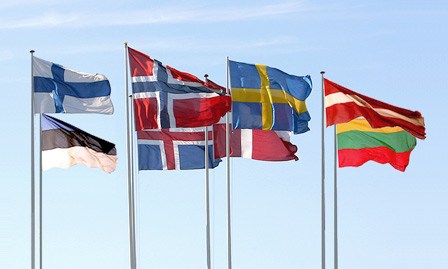In the latest of a growing number of incidents, a Russian diplomat was caught while Harsharn Singh Tathgar, a Norwegian citizen originally from India, was turning over classified information in a restaurant. The PST (Norwegian Security Police) men who made the arrest did not realize that the Russian involved was a diplomat although that was revealed loudly and repeatedly when the PST men searched the Russian and his briefcase for the classified data. The Russian had diplomatic immunity and could not be arrested or, technically, searched. Tathgar works for DNV GL, an international risk management firm based in Norway that did business with the Norwegian military, giving Tathgar access to classified material. Tathgar pled not-guilty of espionage but did admit he was receiving money from the Russians for information. The PST had discovered that Tathgar had been doing this for several years.

This was the first time since 1984 that a Norwegian citizen was arrested for selling classified information to Russia. It’s unusual for a Russian diplomat to be so directly involved in local espionage efforts. If caught the diplomat would be expelled and the staff size of the Russian embassy might be reduced. Normally the Russian are more careful when receiving classified information. One thing that is certain is the increasing Russian interest in Norwegian military affairs and technology developed by the many Norwegian firms that develop and export military technology.
Back in 2008 Norwegian counter-intelligence officials reported that Russian espionage had returned to Cold War levels. Russian espionage has increased worldwide since 2000, ever since former espionage chief Vladimir Putin took charge after he was elected president. He has since become president-for-life. Russia denies this increased espionage, as one would expect, but does defend the use of espionage to protect Russian interests. At first those interests appeared to be mainly economic, but since 2014 military secrets have been sought as well. While Russia depends on the more traditional forms of espionage, like recruiting agents in foreign countries, China has energetically gone the high-tech route, making increasingly effective espionage forays via the Internet. China also uses human spies a lot, but also relies on thousands of Chinese students, businessmen and tourists to pick up bits of intel that are put together back in China to produce useful results.
There was a sharp drop in Russian espionage during the 1990s, and one of the first Russian targets was oil field technology. Norway is a leading developer of off-shore oil drilling equipment and techniques, as well as military equipment and other high-tech items. Norwegians understood Russian interest oil production tech but hoped that, after the Soviet Union collapsed in 1991, the Russians would reduce their espionage efforts in Norway and the rest of Europe. That was the case for a short time before Russian rejoined other nations that were also after Norwegian technology, and had spies active in Norway but not to the extent of the Russians.
(strategypage)
